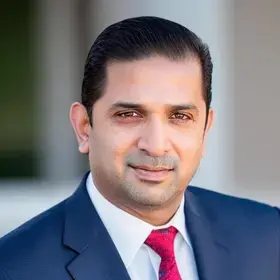By Shana Childs
When Gregory Robinson is not leading the program that’s expected to deepen our understanding of our galaxy’s origin, Robinson serves as a lecturer for Columbia’s Information and Knowledge Strategy (IKNS) M.S. program.
Why is it important for organizations to encourage and provide space for innovation?
Most organizations hire very smart people with a certain technical background to work in a certain discipline. The organization, of course, believes that their hires are smart and are doing great things. But sometimes they can place people in the wrong jobs, for example. Other times, people stop innovating for a variety of reasons such as corporate process loyalty or because they are directed to just “get the job done.” This can constrain creativity. So we have to find a balance to make sure people are executing what is needed and wanted but also allow space for them to innovate. We have to make sure that we don’t constrain all of that knowledge because most organizations have a lot of it, and it will improve organization performance.
At my organization, the knowledge base is tremendous; we have thousands of really smart people. Still, we sometimes delegate roles and responsibilities to separate organizations for distinct goals. There may be a separate organization responsible for innovation, as well as a different mission development organization responsible solely for projects. We can allow some innovation within mission development processes but must ensure that we still have a healthy balance of innovation without disruptive novelty.
I normally tell people, particularly earlier in their career, to become an expert at what you do. Then make sure you branch out beyond your core area of expertise so that you become a lot more valuable. It helps to continue strengthening your areas of expertise.”
What attracted you to work with Columbia’s M.S. in Information and Knowledge Strategy program?
I’ve always been interested in knowledge sharing. I believe in organic learning, the organic transfer of knowledge, and passing knowledge onto others. This could be through storytelling, a document, helpful reading or just by working side by side with someone. I enjoy sharing in all of these formats and have also taught at other universities in the past. Here, I’m able to continue that sharing and that’s what attracted me to the program.
Prior to becoming a lecturer, I served as an advisor; I enjoyed working with the IKNS student cohort as they fine-tuned their capstone projects for a final briefing. Everyone in the cohort is quite accomplished in their careers. That’s a positive, and really telling of the program, to attract those types of students.
What advice would you have for current and future students?
Strengthening your area of expertise starts with understanding how your product may be used in other places and how other people can improve it. At my organization, for example, we have systems engineering, which comes with its own complexities; it requires a holistic understanding of the systems and how they all work together. We use the term integration, but it's more about being holistic – to know how one thing here affects another thing there.
Build relationships beyond the walls of your workplace.”
Lastly, some advice that I didn’t appreciate 20 years ago, is to embrace and develop soft skills. It’s quite noticeable how well the IKNS students work together. Soft skills include things like teaming – knowing when to lead and when to support – understanding how to collaborate, reaching across departments to pull things together, and problem solving.
At my organization, we travel a lot as project teams. So while on the road together, going out to lunch or dinner is a big deal because you get to know people beyond the job. It helps you get to know the person beyond their technical expertise. When you have good times and bad times in the office, these relationships make problem-solving discussions a lot easier.
Gregory Robinson is the Director of the James Webb Telescope Program in the NASA Science Mission Directorate (SMD). Previously, he was the Deputy Associate Administrator for Programs, Deputy Center Director at NASA’s John H. Glenn Research Center (GRC), Cleveland Ohio, and NASA Deputy Chief Engineer (2005-2013). During his time with NASA, Mr. Robinson has received numerous individual and group performance awards, including the Presidential Rank, Distinguished Executive; and Meritorious Senior Professionals and Executives Award.
He holds a bachelor’s degree in Math from Virginia Union University; a bachelor’s degree in Electrical Engineering from Howard University; and a Master of Business Administration from Averett College. He also attended Harvard University, Kennedy School of Government, Senior Executive Fellows Program; and the Federal Executive Institute (Leadership for a Democratic Society).


